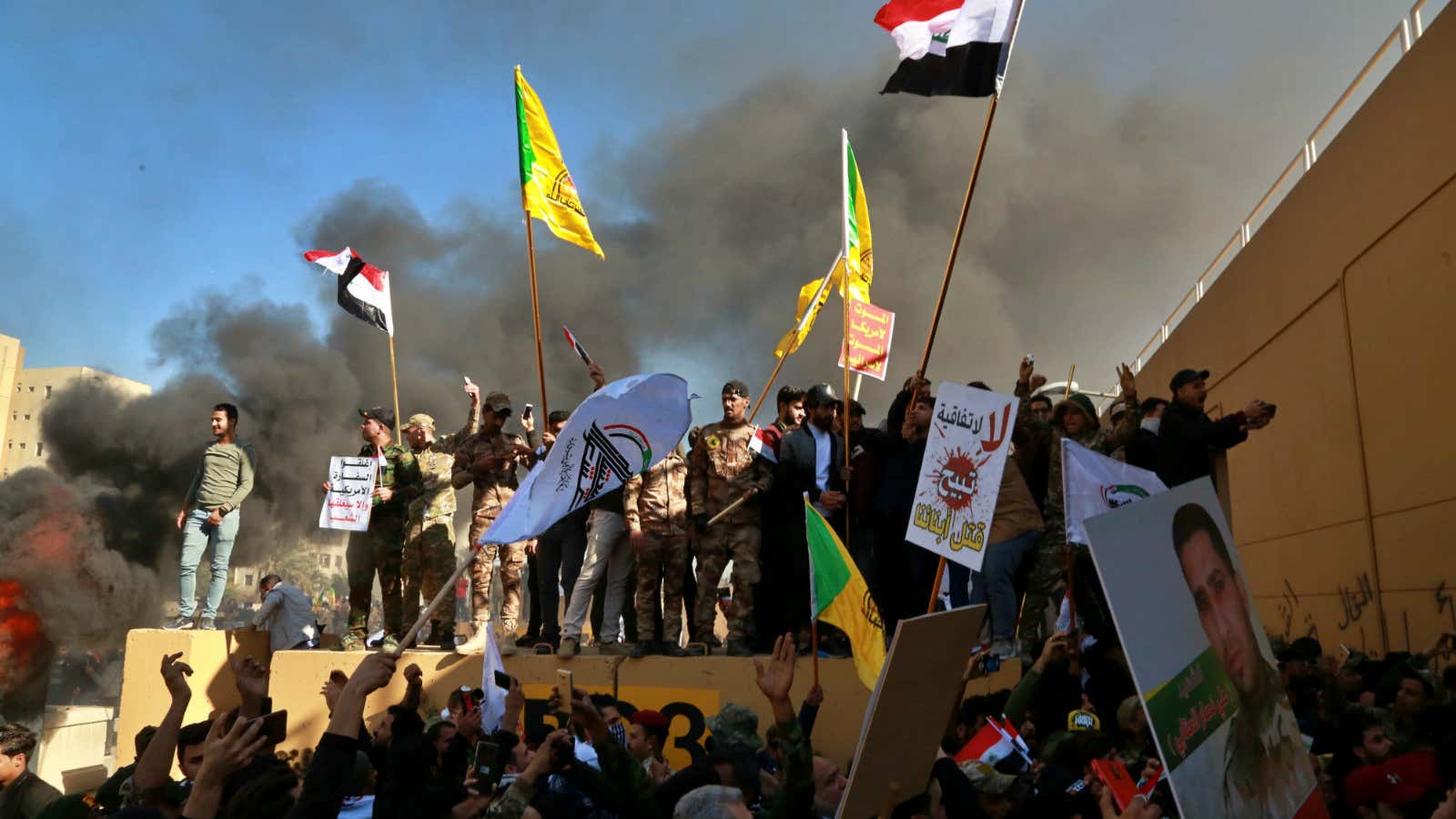India, a major importer of crude oil, need not fret over the spike in global oil prices fueled by the alarming Iran-US faceoff in the past 24 hours.
Prices of Brent crude rose by around $3 per barrel today (Jan. 3) following a US airstrike in Baghdad that killed top Iranian and Iraqi military personnel. The strike comes days after the US embassy in Baghdad was attacked by protesters. This move, the US claims, was approved by Qasem Soleimani, the Iranian General killed in the drone attack.
Iraq is one of the top oil suppliers to India, meeting a fifth of its oil needs in financial year 2019. The supplies from that country, though, are unlikely to be interrupted, experts told Quartz.
“Oil prices have remained stable despite many recent geopolitical tensions in west Asia,” according to Kanwal Sibal, former foreign secretary to the government of India.
In September last year, for instance, 10 drones had targeted a refinery and an oil field in Saudi Arabia belonging to state-owned Aramco. Though there was a knee-jerk reaction in the commodities market to the move, oil prices quickly settled. After today’s US airstrikes, Brent crude futures rose to $69.16 a barrel, which was roughly the price in September 2019.
“The current supply of crude oil in the international market far exceeds demand,” Sibal explained the reason for the price stability. The US has enough oil reserves to prevent a global supply glut, he added.
Prices of petrol in India have risen only marginally since the Aramco attack despite the initial fears of a supply disruption.
The latest US airstrikes are far less serious than the attack on Aramco facilities, which supplied 5% of global crude oil. “Given the huge imbalance in military might (between Iran and the US), this is not likely to escalate into a full-blown conflict. After an initial surge in hostilities, the situation is likely to normalise, pulling oil prices down,” said VK Vijaykumar, chief investment strategist at Kochi-based Geojit Financial Services.
India has historically been vulnerable to geopolitical events. An oil shock in 1973 had sent the economy into a tailspin, resulting in political upheaval that ultimately led to the imposition of Emergency by the then Indira Gandhi government.
Political observers have often drawn parallels between that era and the current one under prime minister Narendra Modi, pointing to Modi’s massive electoral popularity, economic slowdown, grass-root dissent, and growing authoritarianism. Given the state of affairs with the Indian economy, an external oil crisis is the last thing the Modi government would want to tackle.
Yet, history need not repeat itself.
